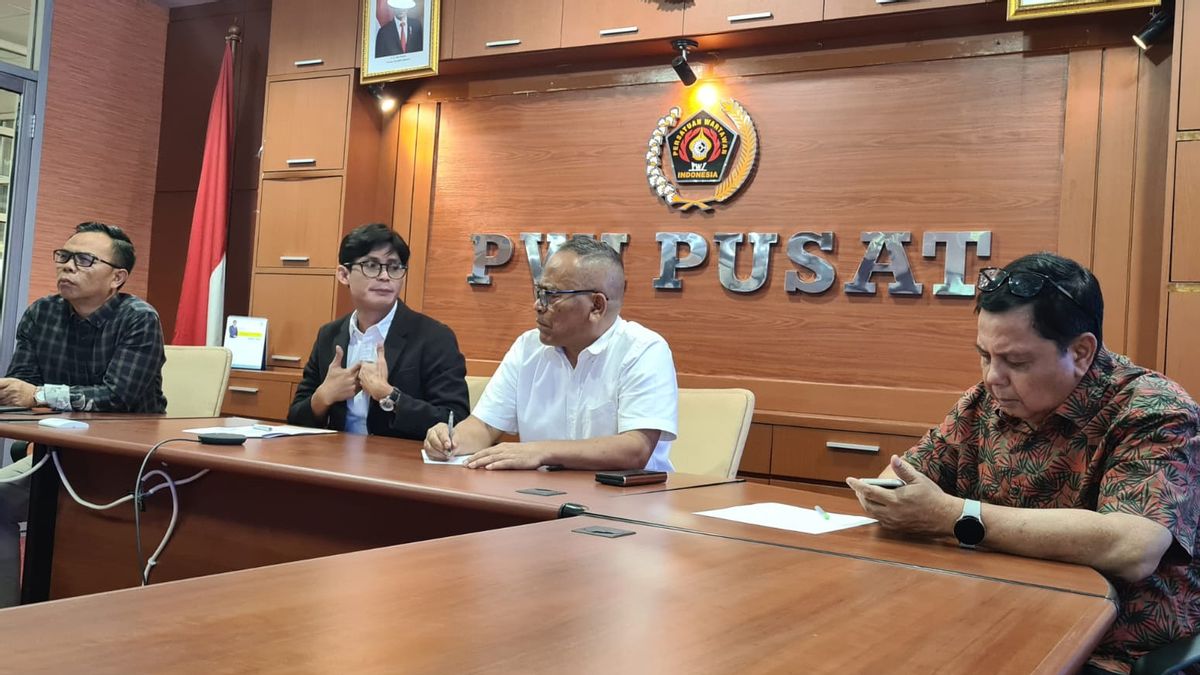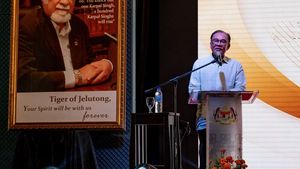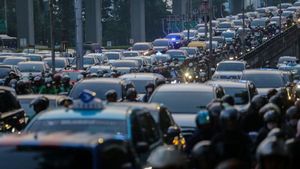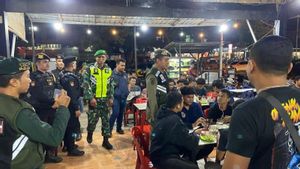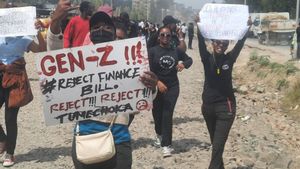KPU Commissioner August Mellaz emphasized that his party was resisting the decision of the Central Jakarta District Court on the decision of the Central Jakarta District Court.
"And we do this, including additional memory, including asking the chairman of the court to first detain the decision which is of a material nature, given its impact on others," he said.
This was conveyed at the Mapilu-PWI and KPU Webinar entitled "Guidelines for the Implementation of the New 2024 Election", Wednesday, April 5.
According to August Mellaz, in KPU Regulation No. 3 of 2022, there are 11 stages of elections that must be stated in KPU regulations regarding programs, schedules, and stages of elections.
"Some have been running and will run. Now on April 5, 2023, coincidentally, simultaneously in each district/city there will be a Temporary Voter List (DPS). This applies throughout Indonesia, in 514 districts/cities," August said.
Meanwhile, in terms of election participation, 18 political parties have been determined at the national level and 6 political parties at the local (Aceh) level. "Currently, if you look at the dynamics, however, it has been consumed by the public, which is related to the decision against the Prima Party. The KPU will not comment on the decision from the judiciary on this matter," he said. But like it or not, he said, the KPU must respect it. It's just a matter of how the KPU uses its space for movement. For example, to appeal the decision, if for example, the KPU does not agree with it.
The last decision from Bawaslu was on the follow-up to the decision of the district court. We were declared by Bawaslu there was an administrative violation and then an improvement was made.
And judging from the deadline, until April 21, it must be decided whether the Prima Party is appointed as an election participant or does not meet administrative requirements.
Then, on May 1-14, there will be nominations for members of the DPR and DPRD. For the nomination of DPD members at this time for candidate registration.
"We project as many as 204,559,713 voters, this is data that we will update. Around 40 percent will be dominated by ages over 40 years, below 17 or novice voters of 500,000. Later we will also definitively," he said.
Meanwhile, the age group is 17-30 years old, the total is 30 percent of the total population. While the age of 17-40 years is around 55 percent. "Well, this behavior is different, so the institutional response is also different," said August.
What is currently taking place is the nomination stage for DPD. For this, there are two things, namely the first way to nominate it, based on the number of support ID cards. Including if you later meet the requirements or not.
The other, is the condition that the person as a candidate for DPD member, among others, is free from punishment, which carries a penalty of five years and it has been five years (jalanned).
August said, it could be that the support requirements meet the requirements, but once the requirements after the Constitutional Court's decision have been issued during registration and he has not finished or completed the five-year sentence, it could be that this candidate does not meet the requirements to run as a member of the DPD.
This is happening in several regions in Indonesia. In the end, it resigned, even though it was already working to collect evidence of support.
Currently, there are 1,034 DPD candidates from 38 provinces who have submitted to register, we will re-examine the requirements.
Currently, the KPU is filing an appeal against the decision of the Central Jakarta District Court against the Prima Party's lawsuit.
"The Prima Party at the same time proposed a PK in the Administrative Court and we carried out a decision from Bawaslu on suspicion of administrative violations from the Prima Party," said August.
Currently, continued August, his position is to verify the factual management in the field at the provincial and district/city levels. And if it meets the requirements from the administrative side, administrative verification, it will be followed by factual verification related to membership, including later the potential improvements. And if according to the deadline, then April 21st can be definitive.
On one occasion, August once cited the results of a survey by a survey agency, namely that the level of millennial confidence in political parties is still low, which is only 37 percent.
We have to read this as a problem on our own. The challenge for the KPU is how to explain to voters, not limited to the stages of the election but also how these young people are registered as voters.
The most important thing is to help young people to ensure why elections are important. Therefore, apart from the organizers, they must also be read by political parties.
However, if we look at for example 37 percent of the data that has confidence in political parties, consider it low, it becomes a challenge in itself.
In fact, from existing survey data, young people are concerned about the future of the manifest. "For example, they are not concerned about election matters or not the election, but their concern about future challenges about work, about health, about environmental issues, renewable energy, they will eventually become political problems," said August. Which, he continued, will all depend on the 2024 election. Youth aspirations are formulated not in policies and programs later in the campaign and then after the 2024 election when the people who sit in the elected political institution are then a national program, for example in the context of policies and the preparation of laws. Now this is actually our common homework. I think the KPU has a homework to answer that need.
The English, Chinese, Japanese, Arabic, and French versions are automatically generated by the AI. So there may still be inaccuracies in translating, please always see Indonesian as our main language. (system supported by DigitalSiber.id)
